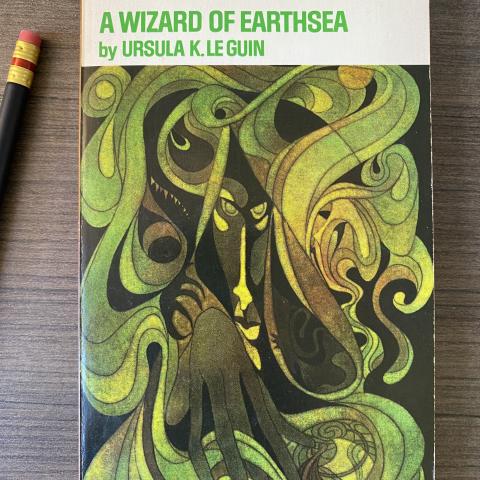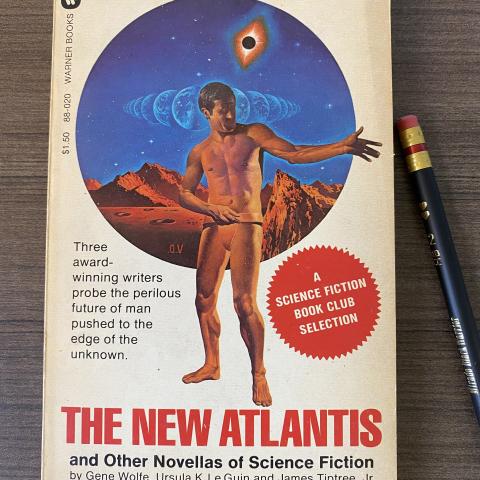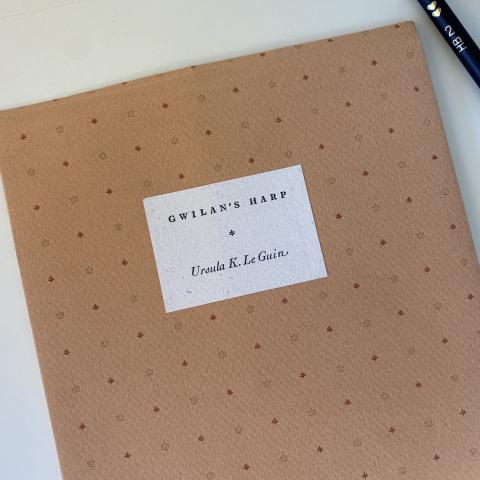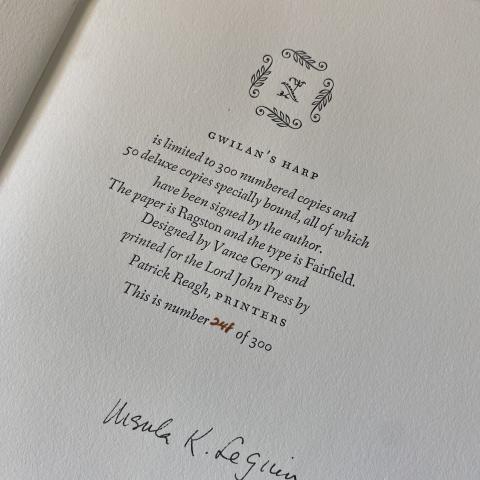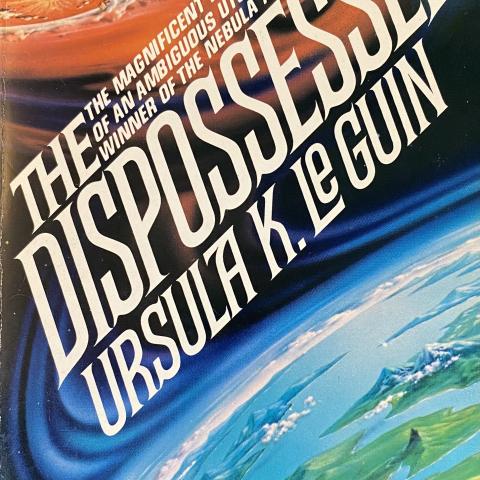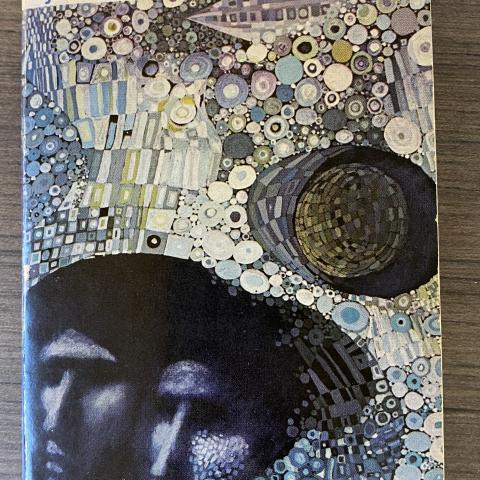"Gathering Wild Oats and Telling Stories": Ursula K. Le Guin's Literary Meals
by Philip W. Walsh, Ph.D., Lecturer, Department of Interdisciplinary Studies and Liberal Studies - October 17, 2023
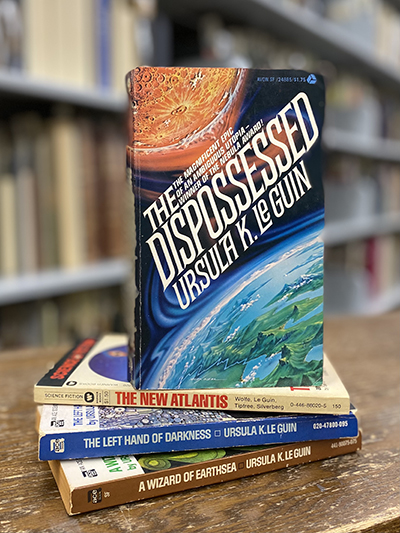 The work of Ursula K. Le Guin (1929-2018), despite being mostly in the genres of science fiction and fantasy, very much expresses real world concerns. One of these issues is food: who has it and who doesn’t, the environmental impact of its use and production, and, as is fitting for an author who was the child of two anthropologists, the traditions surrounding its consumption.
The work of Ursula K. Le Guin (1929-2018), despite being mostly in the genres of science fiction and fantasy, very much expresses real world concerns. One of these issues is food: who has it and who doesn’t, the environmental impact of its use and production, and, as is fitting for an author who was the child of two anthropologists, the traditions surrounding its consumption.
It is telling that in A Wizard of Earthsea, for example, as powerful as the wizards in this novel are—they can control the weather, turn themselves into animals, and speak with dragons—they cannot create food. As the protagonist Ged states, wizards can create the illusion of a meat pie which is “odorous, and savourous, and even filling, but it remains a word. It fools the stomach and gives no strength to the hungry man.” There’s no such thing as a free lunch, in Le Guin’s work.
This fact is clear also in The New Atlantis; food is scarce in this novella, because of overpopulation and incompetent distribution practices by government controlled agribusinesses. Water from the tap must be boiled, to kill harmful bacteria, and almost everyone on the planet is concerned, daily, about their next meal.
Food is also featured in more convivial gatherings throughout her work—in feasts where music is played in Gwilan’s Harp, during the Festival of Summer in The Ones Who Walk Away from Omelas, and in The Lathe of Heaven.
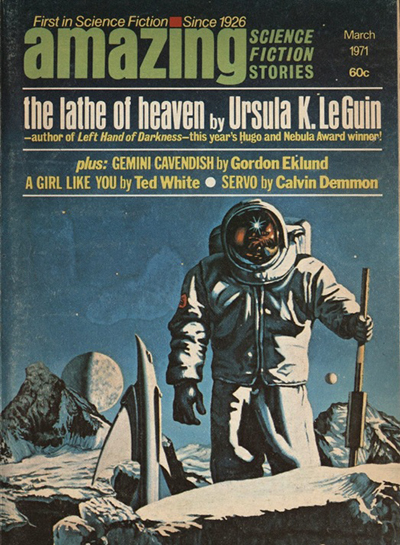 Food in this last novel brings people together, but the subject of food deprivation is also evident. George Orr can change reality through his dreams, and Dr. Haber, a psychiatrist, attempts to use George’s power to improve the world, with mixed results. For example, Haber’s efforts to eliminate overpopulation through George’s dreams result in a plague which eliminates eighty-five per cent of the world’s people. Waking to this new world, George finds that his refrigerator, which contained little food the day before, is now full; remembering how he often went hungry, George eats “a starving man’s meal.” A romance blossoms between George and Heather Lelache, the lawyer he hires to help him escape Haber’s control, and the meals she cooks are a sign of her growing affection for him. In the chaos arising from Haber’s control of George’s dreams, he loses track of her, but in the last few pages, he finds her again when she comes into the Kitchen Sink, a chef’s supply shop for which he is a draftsman; hearing her voice, he rises to speak with her, and so, perhaps, has an opportunity to renew their lost relationship.
Food in this last novel brings people together, but the subject of food deprivation is also evident. George Orr can change reality through his dreams, and Dr. Haber, a psychiatrist, attempts to use George’s power to improve the world, with mixed results. For example, Haber’s efforts to eliminate overpopulation through George’s dreams result in a plague which eliminates eighty-five per cent of the world’s people. Waking to this new world, George finds that his refrigerator, which contained little food the day before, is now full; remembering how he often went hungry, George eats “a starving man’s meal.” A romance blossoms between George and Heather Lelache, the lawyer he hires to help him escape Haber’s control, and the meals she cooks are a sign of her growing affection for him. In the chaos arising from Haber’s control of George’s dreams, he loses track of her, but in the last few pages, he finds her again when she comes into the Kitchen Sink, a chef’s supply shop for which he is a draftsman; hearing her voice, he rises to speak with her, and so, perhaps, has an opportunity to renew their lost relationship.
In Le Guin’s The Dispossessed, set on the twin worlds of Urras and Anarres, the protagonist Shevek, a brilliant young physicist, travels to Urras, from which Shevek’s ancestors and one million others had emigrated seven generations before. Urras is a fertile world with much rainfall, while Anarres is dry and mostly barren; its inhabitants can grow enough food to support only a small population. The inhabitants of Anarres left Urras because of severe resource distribution inequality; drought and famine are not uncommon experiences in some parts of Urras. Many of the most important scenes are set around meals. The night before Shevek leaves his hometown for the planet’s capital to continue his studies, his friends throw a party for him, and over massive amounts of food, saved for just this occasion, they discuss widely ranging topics across a variety of disciplines, forming bonds which reappear later in the book. This meal stands in contrast with a party on Urras, hosted by Vea, the sister of one of Shevek’s colleagues. Over appetizers, the guests discuss weighty ideas, much as Shevek and his friends had, but with much less sincerity; his stomach upset by the rich food and the alcohol he had drunk for the first time, he vomits his meal, as if to purge himself of the excess and emptiness which characterizes Urras.
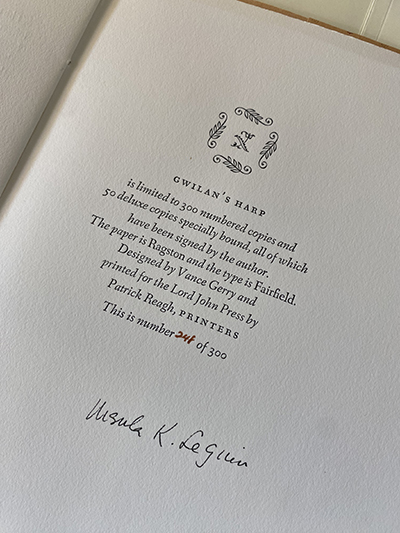 Le Guin’s The Left Hand of Darkness features food in even more difficult circumstances. The novel tells of the flight of the protagonists—Genly Ai, a human, from Earth, and Therem Harth rem ir Estraven, an androgynous native of Gethen, a planet mostly covered in ice—from an oppressive regime. Seeking refuge in a small village on the edge of a glacier, “the extreme habitable limit of a barely habitable continent,” Ai realizes that honesty in that village “is as essential as food...there’s not enough to cheat with.” The novel also demonstrates an awareness of gendered approaches to food and its preparation. Ai’s metabolism is higher than Estraven’s, and Estraven accordingly gives him more food as a result, dividing it, “in his scrupulous way, which one could see as either house-wifely or scientific”—which is to say, according to female or male methodologies, a division which has no meaning to the androgynous natives of Gethen. The line reflects a growing rejection of arbitrary divisions of labor based on gender in food preparation by the feminist movement in the years after World War II. Because of its scarcity, food is treated with respect; it is impolite to discuss serious matters during a meal. On their journey across the permafrost, Estraven notes that eating became “so important and engrossing a business that we never talked anymore while we ate; the taboo was now in its complete, perhaps its original form, not a word said till the last crumb was gone.” The friendship between the two travelers is evident when Ai tells Estraven, “The best food I’ve eaten on Gethen has always been in your company.” As in most of Le Guin’s work, food serves in this novel as a reminder of social inequality, but it also brings her characters closer together.
Le Guin’s The Left Hand of Darkness features food in even more difficult circumstances. The novel tells of the flight of the protagonists—Genly Ai, a human, from Earth, and Therem Harth rem ir Estraven, an androgynous native of Gethen, a planet mostly covered in ice—from an oppressive regime. Seeking refuge in a small village on the edge of a glacier, “the extreme habitable limit of a barely habitable continent,” Ai realizes that honesty in that village “is as essential as food...there’s not enough to cheat with.” The novel also demonstrates an awareness of gendered approaches to food and its preparation. Ai’s metabolism is higher than Estraven’s, and Estraven accordingly gives him more food as a result, dividing it, “in his scrupulous way, which one could see as either house-wifely or scientific”—which is to say, according to female or male methodologies, a division which has no meaning to the androgynous natives of Gethen. The line reflects a growing rejection of arbitrary divisions of labor based on gender in food preparation by the feminist movement in the years after World War II. Because of its scarcity, food is treated with respect; it is impolite to discuss serious matters during a meal. On their journey across the permafrost, Estraven notes that eating became “so important and engrossing a business that we never talked anymore while we ate; the taboo was now in its complete, perhaps its original form, not a word said till the last crumb was gone.” The friendship between the two travelers is evident when Ai tells Estraven, “The best food I’ve eaten on Gethen has always been in your company.” As in most of Le Guin’s work, food serves in this novel as a reminder of social inequality, but it also brings her characters closer together.
These works of Ursula K. Le Guin's and many more can be found in Special Collections & Archives. Including a special copy of Gwilan’s Harp autographed by Le Guin herself! And, for more musings on food please visit the "Eating the Archives" special exhibit on the 2nd floor of the library.
Image Gallery
Post tagged as: special collections, rare books, united states
Read more Peek in the Stacks blog entries